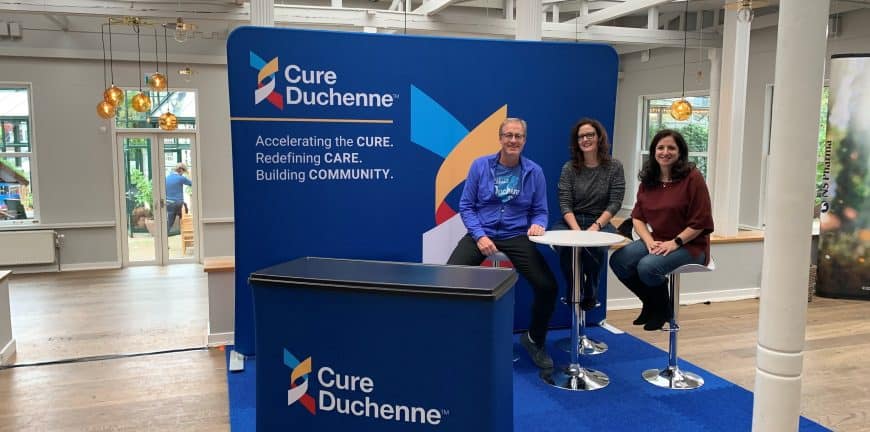24th International Annual Congress of the World Muscle Society (WMS) Day 1 Blog

Greetings from Copenhagen, Denmark, where several members of the CureDuchenne team are attending the 24th International Annual Congress of the World Muscle Society (WMS). This is the largest annual international research conference focused solely on neuromuscular diseases. We are here because it’s an opportunity to hear about the latest research developments and network with others in the field.
This year, the WMS conference has reached maximum capacity. The interest in this conference has skyrocketed in recent years, which is a testament to ever-growing interest in research in Duchenne muscular dystrophy and other neuromuscular disorders. Indeed, the majority of companies and organization sponsoring or exhibiting at the conference are working on therapies in Duchenne muscular dystrophy.
Excitingly, CureDuchenne has a booth at the conference for the first time, which serves as the home base for our team to meet with others interested to learn about CureDuchenne’s programs and to discuss opportunities for future collaborations. We expect we’ll look back at this picture throughout the coming year and realize this was the site where new and impactful efforts got their start.
Over the next four days, our team will also be attending the presentations of the latest research advances and reporting back the most exciting information to you. So, watch this space for daily updates.
Lastly, we find it fitting that the conference is being held in the buildings within Tivoli Gardens, Copenhagen’s historic amusement park. The park opened in 1843, which was just nine years after the first cases of DMD were described. Since then, both visitors enjoying the roller coasters and other rides at Tivoli, as well as researchers in the Duchenne field, have experienced numerous ups and downs, sometimes feeling like they’re going in circles, sometimes with powerful advances forward. Also, through those years, advances in technology have enabled not just continual improvements, but also innovations we could have not originally envisioned.
Sadly, the amusement park rides are closed during the week of the conference, so the team won’t be able to hop on the roller coaster or swings during one of the breaks. However, given the tremendous efforts to develop treatments in Duchenne that are ongoing, we’re hopeful that the energy and excitement within the conference sessions the next several days will more than make up for it!




